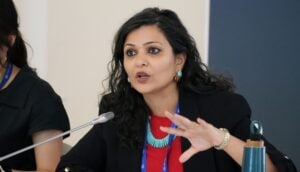Earlier this week, I attended the UK launch of UN Women. Its Executive Director and Under-Secretary-General Michelle Bachelet addressed a packed audience in London to make the case for gender equality and women’s empowerment.
She spoke evocatively about her hopes for UN Women and the World Bank’s upcoming report that positions gender equality as ‘smart economics’, stressing that investing in women is not only the right thing to do, but the smart thing to do and central to sustainable economic growth and poverty reduction.
Following the official launch, Bachelet discussed business’ contribution to this issue with a group of company leaders. The conversations were wide-ranging – auditing and reporting on equal pay; innovative social investment programmes to tackle violence against women; and encouraging the engagement of more women through companies’ supply chains.
Should companies be doing more? Bachelet thinks so. One place to start is theWomen’s Empowerment Principles (created jointly by UN Women with the UN Global Compact), to which over 170 companies have signed to date. This provides a blueprint for companies to create strategies and action to empower women in the workplace, the marketplace and the community. But it’s surely not good enough just to sign up to the Principles. Delivering the UN Women goals will require systematic effort to move from CEO buy-in to delivery and action on the ground.
There are clearly many good initiatives already being run by companies – but so much more needs to be done to build on these good intentions.
According to Governance Metrics International[1] the global aggregate percentage of women on company Boards is now 9.8% but only 2% of the 4200 companies surveyed have female leadership.
And a recent Grant Thornton Report[2] revealed a reduction to 20% of the number of women holding senior management positions globally. Encouraging women entrepreneurship and enterprise makes sense: Women comprise almost half of the agricultural labour force but have less access than men to productive assets and financial services. The FAO has estimated that if women had the same access to productive resources as men they could increase yields on their farms by 20-30%.
However diverse the strategies to address these issues might be, it is clear that companies will truly maximise their impact only if they join up their many good but disparate activities in this area and create integrated policies and practices that deliver to the core business imperatives.
Today some of IBLF’s activities – particularly in areas of inclusive business,human capital and leadership development – and the work of our corporate partners align with the UN Women agenda and the messages of the Women’s Empowerment Principles. But IBLF has not specifically looked at its work through the lens of gender equality and the women’s empowerment. The UN Women launch provides us with the opportunity to assess how we can, with our company and civil society partners, do more to eliminate gender discrimination, provide opportunities for economic empowerment and tackle violence against women.
There are big expectations on UN Women to show results against these and other objectives. Watch out for more on how IBLF plans to help to change mindsets, cultures and behaviour.









